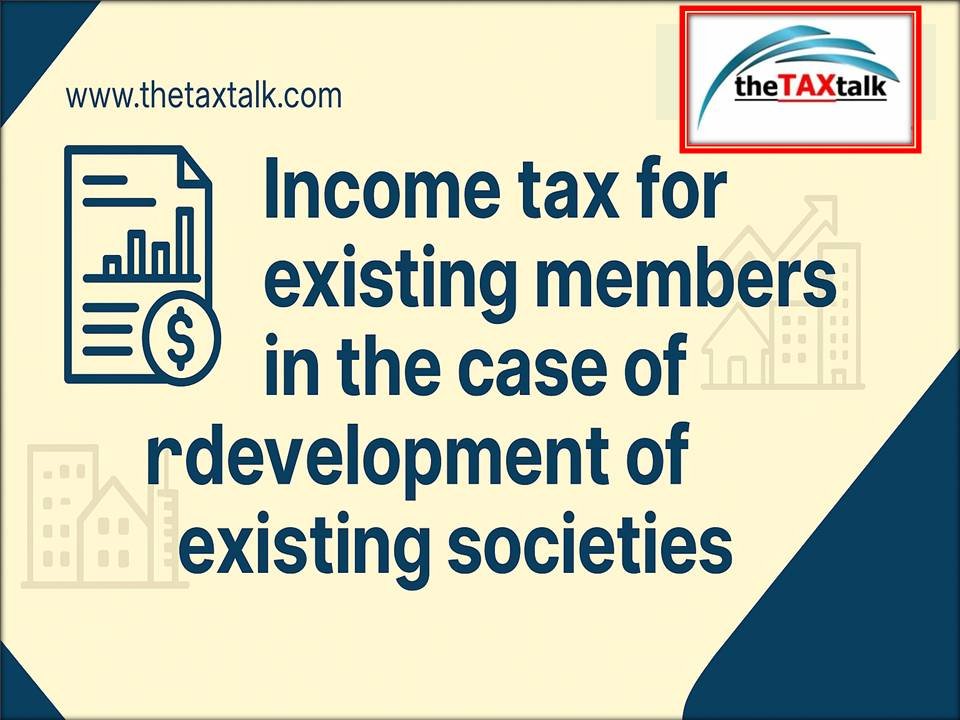![]()
Income tax for existing members in the case of redevelopment of existing societies:
1. What is Redevelopment?
In redevelopment, an existing society or group of flat owners hands over old property/land to a developer. The developer demolishes the old building and constructs a new one.
In exchange, each flat owner typically gets
a new flat (larger/better than the old one) and monetary compensation (for rent during construction, hardship, corpus fund).
From the Income-tax Act’s perspective, this is very similar to a Joint Development Agreement – it involves transfer of development rights.
2. When is it a Transfer?
As per Section 2(47)(v) of the Income Tax Act read with Section 53A of the Transfer of Property Act, transfer occurs when possession is given in part performance of a contract.
However, for individual/HUF flat owners, Section 45(5A) applies (introduced w.e.f. AY 2018–19). Capital gains are taxed in the year of completion certificate of the new building.
This defers taxation and avoids hardship of paying tax before receiving the new flat.
3. Full Value of Consideration for Flat Owner
As per Section 45(5A, full value of consideration is:
Stamp Duty Value (SDV) of the new flat received at the time of completion certificate
plus
Any monetary compensation (corpus fund, rent reimbursement, hardship compensation).
4. Cost of Acquisition
The indexed cost of acquisition of the old flat (original purchase price + cost of improvement).
If the flat was inherited, cost to previous owner is taken.
As per CIT v. Manjula J. Shah (2012) 204 Taxman 42 (Bom HC) – Cost to previous owner is allowed with indexation.
5. Treatment of Monetary Compensation
Rent Reimbursement
If reimbursement is equal to actual rent paid, it may not be treated as income (supported by tribunal rulings).
If it exceeds actual rent, excess may be taxable as part of consideration.
Corpus Fund / Hardship Allowance:
Taxed as part of capital gains consideration (being linked to transfer).
Shift/Rent-free Accommodation: Also generally subsumed in full value of consideration.
6. Exemptions Available
Section 54 – If the new flat received qualifies as a residential house, the capital gain may be exempt.
E.g., if old flat was held for >2 years, gain is LTCG, and new flat itself is treated as investment.
Many courts have accepted that the new flat in redevelopment qualifies for section 54
ITAT Mumbai – Jatinder Kumar Madan v. ITO (2012) 19 ITR(T) 123 (Mum Trib): Flat owner received a new flat. It was held that new flat received is eligible for exemption under Section 54.
The copy of the order is as under:


